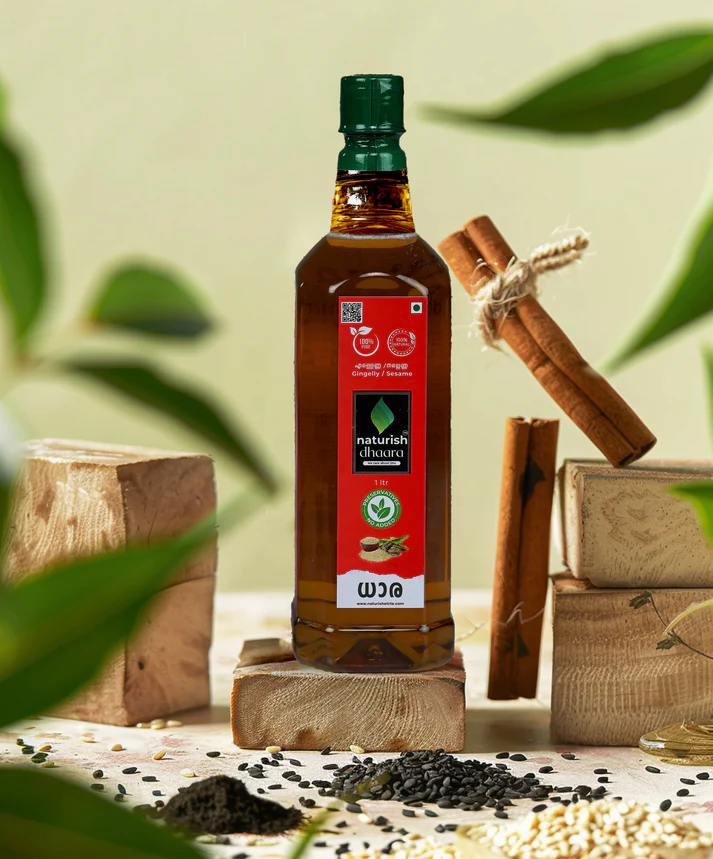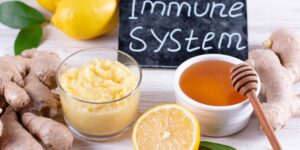
Introduction: The Golden Essence of Tamil Flavours
Every kitchen Sesame Oil in Tamil Nadu carries a distinctive aroma one that immediately evokes warmth, nostalgia, and authenticity. Among the many ingredients that define this cuisine, sesame oil stands out as a timeless treasure. Known locally as nallennai or “good oil,” it’s not just a cooking medium but an emotion, a golden thread that weaves together Tamil Nadu’s culinary heritage. From the spicy Chettinad curries to the comforting idli, Sesame oil Tamil Nadu plays a vital role in creating flavours that are both rich and soulful.
While today’s kitchens are filled with a variety of Cooking Oils, the charm of Cold-Pressed Oils like sesame and Coconut Oils continues to endure — both for their taste and their health-giving properties.
The Heritage of Sesame Oil in Tamil Nadu
Tamil Nadu has long celebrated the use of sesame oil, not only in food but also in wellness rituals, festivals, and traditional ceremonies. Ancient Tamil literature and Ayurvedic texts mention it as a sacred oil, symbolising purity and nourishment. Extracted through age-old methods using wooden presses , Cold-Pressed Oils like sesame retain their natural nutrients, aroma, and colour — making them far superior to refined alternatives.
In many Tamil homes, sesame oil is the first choice for tempering spices, frying, and even as a finishing drizzle on rice dishes. It lends a depth of flavour that other Cooking Oils simply can’t replicate.
The Nutty Aroma that Defines Tamil Nadu’s Cuisine
One of the most delightful things about Sesame oil Tamil Nadu is its unmistakable nutty aroma and warm, golden hue. Unlike other oils, it enhances both the taste and the texture of food without overpowering it. When slightly heated, its flavour deepens, infusing dishes with a toasty richness that pairs beautifully with the bold spices of South Indian cuisine.
This nutty note is what makes it indispensable in classics like Chettinad curries, Vathal Kuzhambu, and idli podi — a dry chutney powder often mixed with sesame oil and enjoyed with soft idlis or dosas. For many Tamil households, that simple combination of idli podi and sesame oil is more than a meal; it’s comfort in its purest form.
How Tamil Cooks Use Sesame Oil in Their Kitchens
To truly appreciate how to use sesame oil in cooking, one must step into a Tamil kitchen. It’s where tradition and flavour meet effortlessly.
- Tempering spices: A small spoon of sesame oil is heated to release mustard seeds, curry leaves, and dried red chillies — forming the aromatic base of countless dishes.
- Enhancing curries: From spicy Chettinad chicken to tangy tamarind gravies, sesame oil amplifies the complexity of flavours.
- Mixing with powders: The oil binds spice mixes like idli podi or sambar podi, transforming them into flavourful accompaniments.
- As a drizzle: Just a touch of sesame oil over hot rice, with a pinch of salt, is a simple yet divine meal many Tamils swear by.
Every drop of Sesame oil adds not only richness but also a connection to the land’s culinary soul.
Health Benefits: The Goodness Beyond Flavour
Beyond its taste, sesame oil is celebrated for its impressive health benefits. It’s loaded with antioxidants and vitamin E, both of which support heart health, boost immunity, and promote glowing skin. Thanks to its anti-inflammatory properties, it has long been used in traditional massages and Ayurvedic treatments as well.
Unlike refined Cooking Oils, Cold-Pressed Oils retain natural nutrients because they’re extracted without excessive heat. This makes Cold-Pressed sesame oil one of the healthiest choices for cooking, especially when used in moderation.
Coconut Oil vs Sesame Oil for Cooking: A Southern Perspective
No conversation about South Indian cooking is complete without mentioning Coconut Oils. While coconut oil is a staple in Kerala and the coastal regions of Tamil Nadu, sesame oil dominates the heartland.
- Coconut oil offers a mild, tropical sweetness and is perfect for light stir-fries, curries, and sweets.
- Sesame oil, on the other hand, adds a warm, nutty depth ideal for spicy and tangy preparations.
When it comes to coconut oil vs sesame oil for cooking, both have unique strengths. Coconut oil cools the body and provides quick energy, while sesame oil has a warming effect and is rich in antioxidants. The two oils complement each other beautifully, showcasing the diversity of traditional South Indian cuisine.
Stories from Tamil Kitchens: Flavour with a Heart
Ask any Tamil grandmother about sesame oil, and she’ll likely smile before telling you about her kitchen rituals. Many still prepare homemade spice powders, storing them in brass jars and mixing them with Sesame oil for daily meals. Some families even believe that cooking with Cold-Pressed Oils invites positive energy into the home.
There’s a comforting rhythm to Tamil cooking — the gentle sizzle of spices meeting hot sesame oil, the earthy aroma filling the air, and the satisfaction of knowing that every ingredient has a purpose. It’s not just about taste; it’s about nourishment, care, and connection.
Conclusion: A Drizzle of Tradition in Every Drop
Sesame oil Tamil Nadu represents more than just a cooking ingredient — it’s a bridge between past and present, tradition and taste. Whether it’s used in a humble idli podi or a grand Chettinad feast, it brings warmth, depth, and authenticity to every dish.
As modern kitchens embrace healthier and more natural alternatives, the comeback of Cold-Pressed Oils — including sesame and Coconut Oils marks a return to wisdom that has always been there. So next time you cook, reach for a bottle of sesame oil and drizzle a little tradition into your meal.
FAQs
Q1. What makes sesame oil special in Tamil Nadu cooking?
Sesame oil, or nallennai, gives Tamil dishes their signature nutty aroma and golden colour. It enhances flavours in idli, tamarind gravies, and Chettinad curries while also offering nutritional benefits.
Q2. How can I use sesame oil in daily cooking?
You can use it for tempering spices, mixing with chutney powders, frying, or drizzling over hot rice. Learning how to use sesame oil in cooking is simple — just a small amount can transform the flavour of any dish.
Q3. Is sesame oil healthier than coconut oil?
Both are excellent Cold-Pressed Oils. Sesame oil is rich in antioxidants and vitamin E, while Coconut Oils contain medium-chain fatty acids that support energy and metabolism. Choosing between them depends on your flavour preference and cooking needs.



